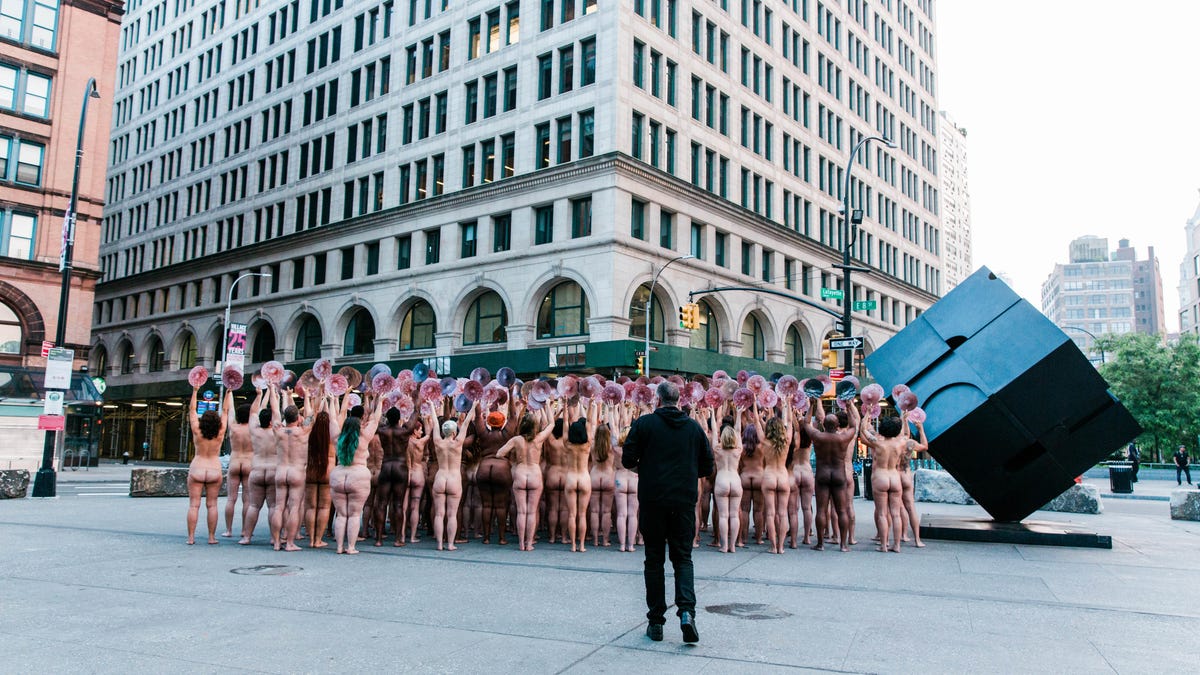Dozens strip down outside Facebook office to protest nudity rules on social network
The human body is only acceptable in certain forms, and anti-censorship activists aren't OK with that.

Artist and photographer Spencer Tunick created a nude installation outside of Facebook's New York office.
Despite Facebook's policies that make certain allowances for nudity on the social network, some artists say the rules prevent them from sharing their work online.
On Sunday, artist and photographer Spencer Tunick created a nude installation outside of Facebook and Instagram's New York office with help from the National Coalition Against Censorship (NCAC). Dozens shed their clothes, lay in the street and used images of male nipples -- which are acceptable on Facebook -- to cover people's nipples and genitalia.
In a tweet describing the performance piece, Tunick said there were "male nipple stickers covering female presenting nipples and male nipple cards covering all ... genitalia."
"The nudity ban is punishing for photographers and particularly harms artists whose work focuses on their own bodies, including queer and gender nonconforming artists. It also affects museums and galleries that have difficulty promoting photography exhibitions featuring nudes," Christopher Finan, NCAC's executive director, said Sunday in an open letter to Facebook.
The NCAC's campaign, #WeTheNipple, calls for Facebook and Facebook-owned Instagram to make an exception to their nudity restrictions to allow for art photography. The campaign has support from more than 20 US and international organizations, museums and art institutions, as well as hundreds of artists.
Finan suggests creating the ability for users to set filters and blocks, instead of having Facebook decide for everyone. Tunick said Facebook and Instagram should communicate more with artists. Similarly to Finan's idea, Tunick said there could be a verification process to protect artists from censorship.
"Instagram has become the magazine of the world and to censor artists using the nude body as their medium is repressive and hurtful to art and freedom," Tunick said. "They are deleting artworks and accounts where artists are even using proper self-censoring techniques to make their nude works acceptable for Instagram. Plus it's just downright mean, hurtful and unnecessary to allow male nipples and not female nipples on their platform."
A Facebook spokesperson said the platform had been in touch with the NCAC in the lead up to Sunday's demonstration. The NCAC said that Facebook's response in discussions so far has given it some hope and that it expects to announce progress soon.
"We look forward to continuing the dialogue with NCAC and other affected groups in more detail," a Facebook spokesperson said in an email.
Originally published June 3.
Update, June 4: Adds comment from Facebook, the NCAC and Spencer Tunick.

